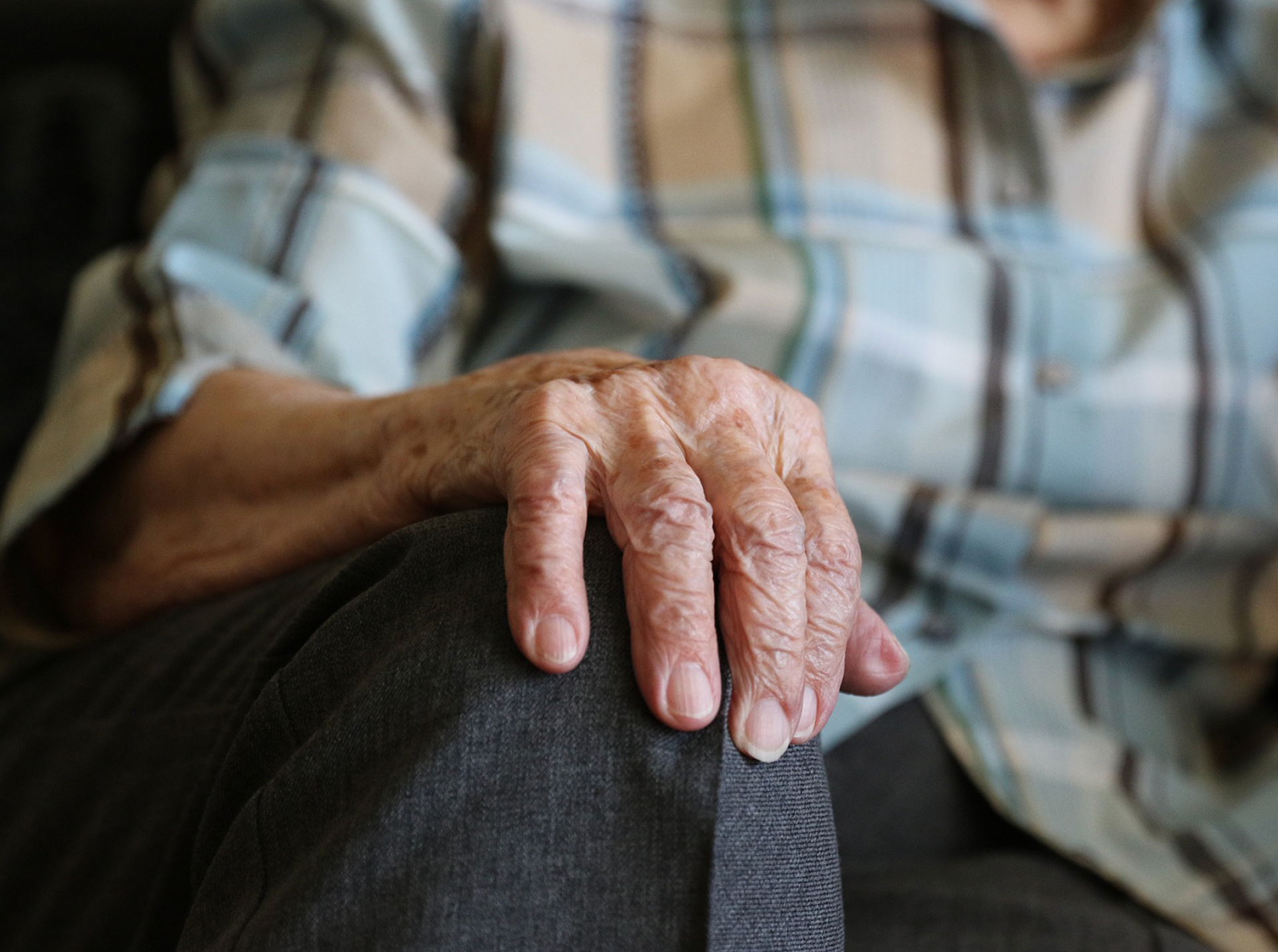
"I will never give a deadly drug to anyone if asked for it, nor will I make a suggestion to this effect."
—Hippocratic Oath
The statement above is the foundational moral principle of medicine, pledged by doctors for centuries as they attempt to cure and relieve suffering without injuring the patient. It's a principle being eroded by the movement to legalize physician-assisted suicide and euthanasia. When combined with an impersonal and technological healthcare system, the movement to support physician-assisted suicide has proven lethal. Prescribed suicide is an immoral slippery slope that corrupts the doctor-patient trust. Put simply, it’s dangerous. And it’s not just dangerous for the physicians and healthcare workers, but it’s also dangerous for our country, our healthcare system and for every patient.
We are committed to providing the most up-to-date information on the legislative, ethical and medical aspects of the fight against the legalization of physician-assisted suicide and euthanasia. We’ve compiled a variety of resources that you can use to educate yourself and others about this important issue. So get involved today: talk about the issue with your friends, write your legislators and send a letter to your local newspaper to let others know how important this issue is for your state and our country.
Current End of Life Related Legislation
VERMONT
Act 39 - Patient Choice and Control at the End of Life Act
The "End of Life Choices" act was signed into law to legalize physician-assisted suicide. Following a 10-year campaign to promote a Vermont's aid-in-dying bill, in collaboration with the local partner Patient Choices Vermont, the Vermont state legislature passed the Act in 2013. Governor Peter Shumlin signed the Act on May 20, 2013. The law went into effect immediately. Vermont thus became the third state to enact a Death with Dignity law, the first to be passed through legislation. The sunset provision on certain patient safeguards was removed by S.108 (Act 27) in May 2015.
RESOURCES
Dangers of Medical Aid in Dying (MAID) in New Jersey (Physician Assisted Suicide)
Matthew Y. Suh, MD MPH
1. Describe the qualifications for the application of NJ Medical Aid in Dying (MAID) law, 2. Describe the historical perspective on physician assisted suicide (PAS), 3. Describe the current status of PAS legislations in the United States, 4. Describe the positions of major medical societies and organizations regarding PAS.
Palliative Care or Assisted Suicide?
Michael Cheng-tek Tai, PhD
Fu Daren, a well-known sports anchorman of Taiwan Television Company for broadcasting NBA events, vehemently chose assisted suicide instead of palliative care to solve his suffering when faced with unbearable pain of a pancreatic cancer.
Physician-Assisted Suicide: NOT Exactly What Its Proponents Advertise It to Be
D. Joy Riley, M.D., M.A.
The topic of physician-assisted suicide (P-AS) is a persistent one, especially when people are in pain or are worried about impending death. We need to think deeply and well about this issue.
Things Are Not as They Seem
D. Joy Riley, MD, MA
Videos of Brittany Maynard, who ended her life on November 1, 2014, by physician-assisted suicide (PAS), have brought the discussion of PAS to national and even international levels.
What’s Happening with Physician-Assisted Suicide
Jane Patton, RN
In healthcare the movement is at warp speed such that we can be like frogs in the proverbial frying pan, not taking to heart the implications of such rapid and significant change.
Position Paper on Physician-Assisted Suicide
D. Joy Riley, MD, MA
On 19 September 2017, the Ethics, Professionalism and Human Rights Committee of the American College of Physicians released their position paper on physician-assisted suicide (P-AS).
Medicine’s Schizophrenic Approach to Suicide
D. Joy Riley, MD, MA
A literature review cited by Medscape revealed a physician suicide rate of 28-40 per 100,000 versus a suicide rate of 12.3 per 100,000 for the general population.
Helping Patients Live vs. Helping Them Die
D. Joy Riley, MD, MA
On Sunday, 28 May 2017, The Tennessean published a full page set of articles on the problem of suicide amongst the armed forces in our nation.
What if we call it “Medical Aid in Dying”?
D. Joy Riley, MD, MA
In the aftermath of WWII, Leo Alexander penned the following as part of an article published in the New England Journal of Medicine: The Example of Successful Resistance by the Physicians of the Netherlands...
MASS: No to Doctor-assisted Suicide
Dr. Mark Rollo - Sentinel Enterprise
Nine times in recent years, the death lobby has poured out-of-state money into Massachusetts in an effort to establish law that would simultaneously place the vulnerable at risk and corrupt the practice of medicine.
We Should Walk with People Who are Dying, Not Lead Them to It
Opinion- PA Media Group
I think we should start by calling this process for what it is, as opposed to the term Death with Dignity.
Over 100 Patients Ended Their Lives in CA in One Year
Christian News Network
The California Department of Public Health recently released its 2016 data report, which provided information on the results of California’s End of Life Option Act (EOLA).
The Effect of legalizing Assisted Suicide on Palliative Care and Suicide Rates
Richard M. Doerflinger, M.A.
As for end-of-life care improving “overall” due to legalization, findings published in the very journal cited by C&C suggest that the opposite occurred after the law took effect...
Editorial: Nevada Should Reject Assisted Suicide Bill: Dr. Kirk Bronander
Reno Gazette-Journal
In the past 20 years, more than 175 state campaigns to legalize assisted suicide have been introduced. Most have failed and continue to fail, even in some of the most progressive states across the country.
First, Do No Harm: Worth Fighting For
Family Policy Alliance
People come to him seeking help for their medical problems. But what if instead of a prescription for health, he directs you to take a prescription for death?
10 Reasons Why Physician-Assisted Suicide Should Be Overturned in D.C.
AAME
Eleven members of the District of Columbia Council decided in November 2016 to legalize assisted suicide, paving the way to providing DC citizens with lethal pills to kill themselves.
Vermont Alliance for Ethical Healthcare v. Hoser
Alliance Defending Freedom
The Vermont Board of Medical Practice and Office of Professional Regulation are reading the state’s assisted suicide law to require health care professionals, regardless of their conscience or oath, to counsel patients on doctor-prescribed death as an option.
AMA Position on Physician-Assisted Suicide
American Medical Association
It is understandable, though tragic, that some patients in extreme duress—such as those suffering from a terminal, painful, debilitating illness—may come to decide that death is preferable to life.
For Physicians, “Studied Neutrality” on Assisted Suicide Is a Cop Out
Wesley J. Smith
For years — decades, actually — euthanasia forces have tried to take MD opposition off the table by convincing major medical associations to adopt a position of “studied neutrality.”
Always Care, Never Kill: How Physician-Assisted Suicide Endangers ...
Ryan T. Anderson, Ph.D.
Allowing physician-assisted suicide would be a grave mistake for four reasons. First, it would endanger the weak and vulnerable. Second, it would corrupt the practice of medicine and the doctor–patient relationship.
Lessons from Recent Polls on Physician-Assisted Suicide
Dr. Frederick J. White, MD, FACC, FCCP



